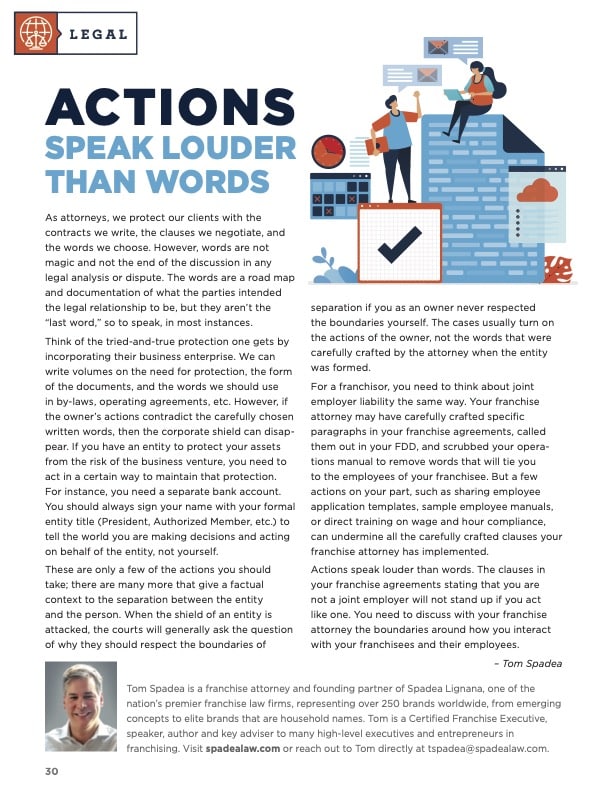This article by Tom Spadea was featured in the May 2021 issue of Franchise Dictionary Magazine.
Actions Speak Louder Than Words

Think of the tried-and-true protection one gets by incorporating their business enterprise. We can write volumes on the need for protection, the form of the documents, and the words we should use in by-laws, operating agreements, etc. However, if the owner’s actions contradict the carefully chosen written words, then the corporate shield can disappear. If you have an entity to protect your assets from the risk of the business venture, you need to act in a certain way to maintain that protection. For instance, you need a separate bank account. You should always sign your name with your formal entity title (President, Authorized Member, etc.) to tell the world you are making decisions and acting on behalf of the entity, not yourself.
These are only a few of the actions you should take; there are many more that give a factual context to the separation between the entity and the person. When the shield of an entity is attacked, the courts will generally ask the question of why they should respect the boundaries of separation if you as an owner never respected the boundaries yourself. The cases usually turn on the actions of the owner, not the words that were carefully crafted by the attorney when the entity was formed.
For a franchisor, you need to think about joint employer liability the same way. Your franchise attorney may have carefully crafted specific paragraphs in your franchise agreements, called them out in your FDD, and scrubbed your operations manual to remove words that will tie you to the employees of your franchisee. But a few actions on your part, such as sharing employee application templates, sample employee manuals, or direct training on wage and hour compliance, can undermine all the carefully crafted clauses your franchise attorney has implemented.
Actions speak louder than words. The clauses in your franchise agreements stating that you are not a joint employer will not stand up if you act like one. You need to discuss with your franchise attorney the boundaries around how you interact with your franchisees and their employees.
To see all of Tom’s featured articles on The Franchise Dictionary Magazine, visit this page.







